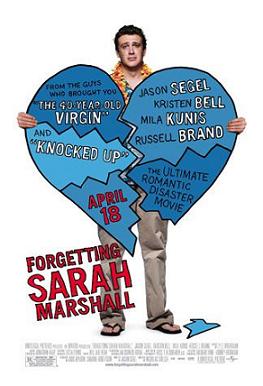2008
8.3

There is something seriously paralyzing about unrestrained optimism. In a time when pessimism encroaches on us from all sides and dissent is a way to spend a free afternoon, optimism has the potential to seem like baseness. There is an assumption of hollow dumbness when it comes to those free-of-care types. A subconscious envy of their bliss exists that is senselessly undercut by an open deriding of their pacified nature. The belief is that happiness stems from ignorance while hopelessness stems from enlightenment; that happiness is a byproduct of stupidity. Those who are miserable defend their anguish with paranoia and anxious morbidity. One side sees a brilliant green lawn, the other side sees chemicals and the autocratic cultural need to “keep up the Johnsons.” Like oil and water the two groups are bound to mix but never mingle. Happy-Go-Luck is the sublime story of a woman, Poppy (Sally Hawkins), who lives in an exalted state of joy. She acts without pretensions, loves without regret and forgives without question. She is not just an exemplar of passionate goodwill, but a reason to do good in this troubled world.
We are introduced to Poppy as she rides her bike down a city street, stopping to inspect a local bookstore. Inside she attempts to converse with the man working there. He completely ignores her cheery gabbing and wisecracks. She exits nonchalantly unaffected by the man's lack of hospitality. Outside her bike has been stolen. Where the former scene of poor temperament may have possibly gone unnoticed by the average person having a good day, the stolen bike surely would have swung their internal emotional pendulum back toward antipathy. Polly's reaction? She didn't get to say goodbye to the inanimate object of her affection. Thus her heroic world begins to unfold before us with all its intricacies and delicate folds, like living origami.
The first assumption a person might make about Poppy is the same one mentioned above: that she is blind to reality. If you saw only the first half of Happy-Go-Lucky you might be prone to agree. The first hour of the film meanders, daintily plucking scenes from Poppy's day to day life as a primary school teacher, drinking buddy and good natured, fun loving girl. Terms like “fun loving” and “good natured” are like the word “nice”: we use them when there is little else to say about a person. Poppy is at no point completely unidirectional, but dimensionally she flourishes in the film's second half.
At this point the film wanders away from the emotional ground upon which it was founded. In order to prove its versatility, it puts the viewer in awkward, intimate environments with friends, family and strangers. We meet vicious , emotionally unstable driving instructor Scott as well as over controlling, defensive and unsatisfied sister Suzy. These two characters in particular represent challenges to Poppy's earnest, grounded optimism. Scott tells her, during paranoid rants, that she should be unhappy because the government is making its people into slaves and seemingly everyone is moronic beyond comprehension. Suzy tells her she needs to “plan for the future” and “take life seriously”. They both cruelly make assumptions about Poppy's good nature, mostly that she is lying to herself. Poppy on the other hand knows her happiness but also instinctively puts others before herself. She doesn't need to argue because her conviction cannot be shaken. Poppy doesn't make any grand, sweeping statements about the state of the world, nor does she try to inflict her ways upon others. She exerts her influence in positive, thoughtful ways that make her not only irresistible but inspirational as well.
The film's message is clear: It is good to be happy and it is also good to be balanced, suggesting that the one enhances the other. Poppy is both. She meets the challenges in her life rather than attempting to avoid them. In a climactic scene with Scott, during which he flies into in an inexcusable rage fueled in part by his repressed childhood trauma and his unrestrained passion for Poppy, the audience is given a true picture of her character. In the face of physical abuse she still tries to help Scott, doing everything in her power to extend even a little bit of her happiness to him. He refuses it. The incident is not ignored but rather kept in context, one of Poppy's best qualities. She moves forward not giving up but rather taking from the encounter any lesson that could have possibly been learned and adding it thoughtfully to her lexicon of satisfied living.
In Happy-Go-Lucky Mike Leigh, through a penchant for natural filmmaking and a strong belief in humanity, has given the world a character worth talking about and a story worth remembering. He has conquered the injustice of insensitive fools who equate naivete to happiness and cynicism to rationality. He has shed light upon the complexities latent in the optimist. Most of all though he has a told a story of a hero who actually deserves her happy ending.
